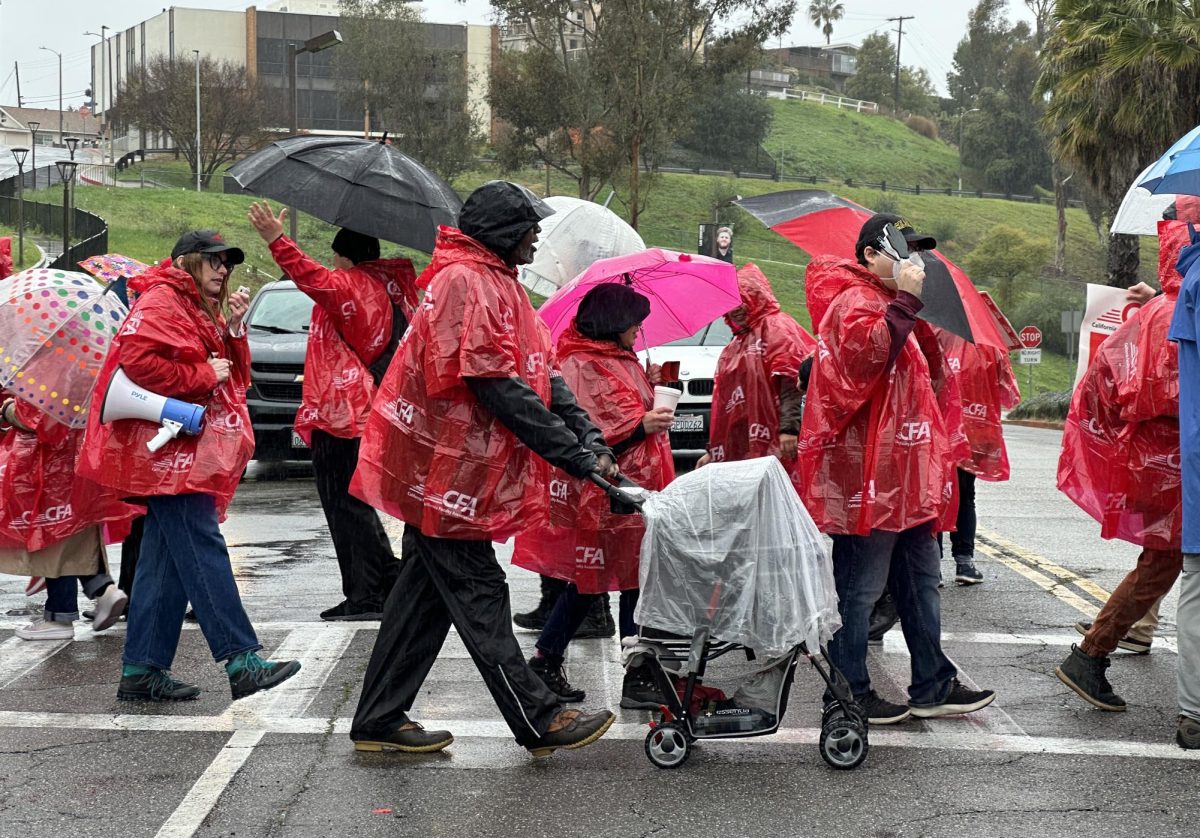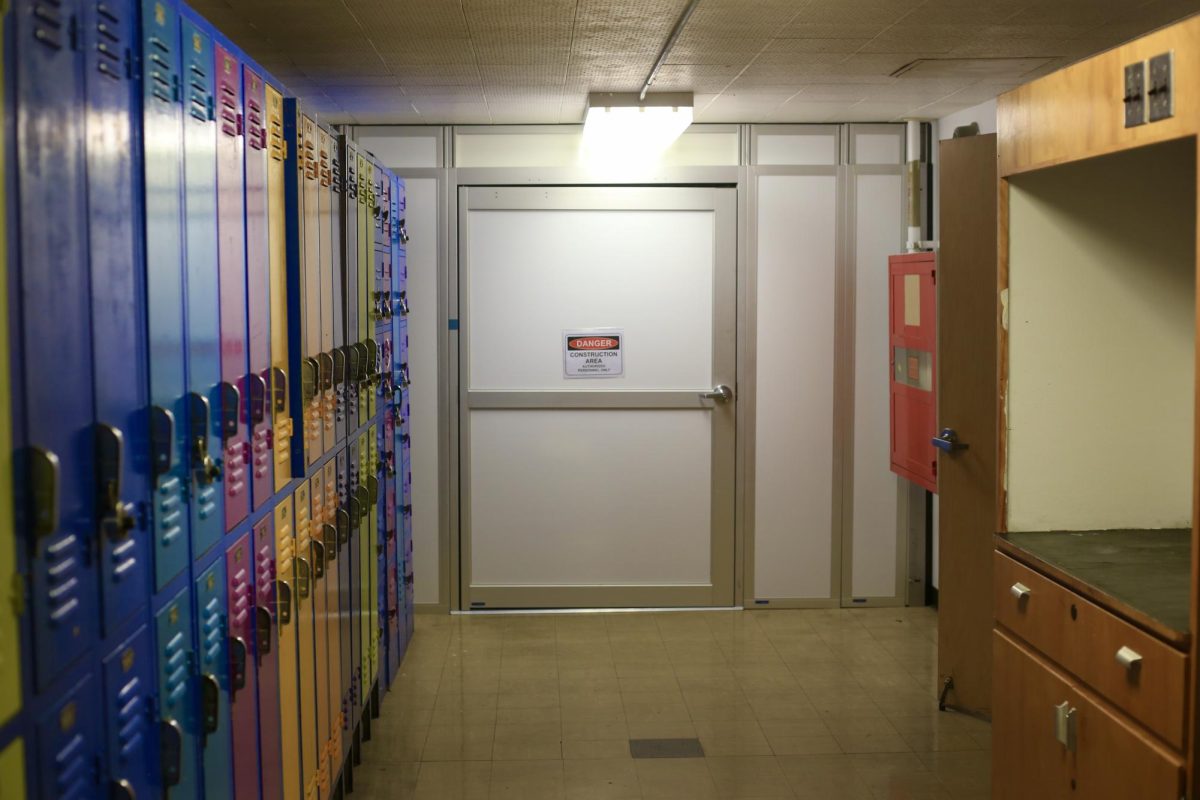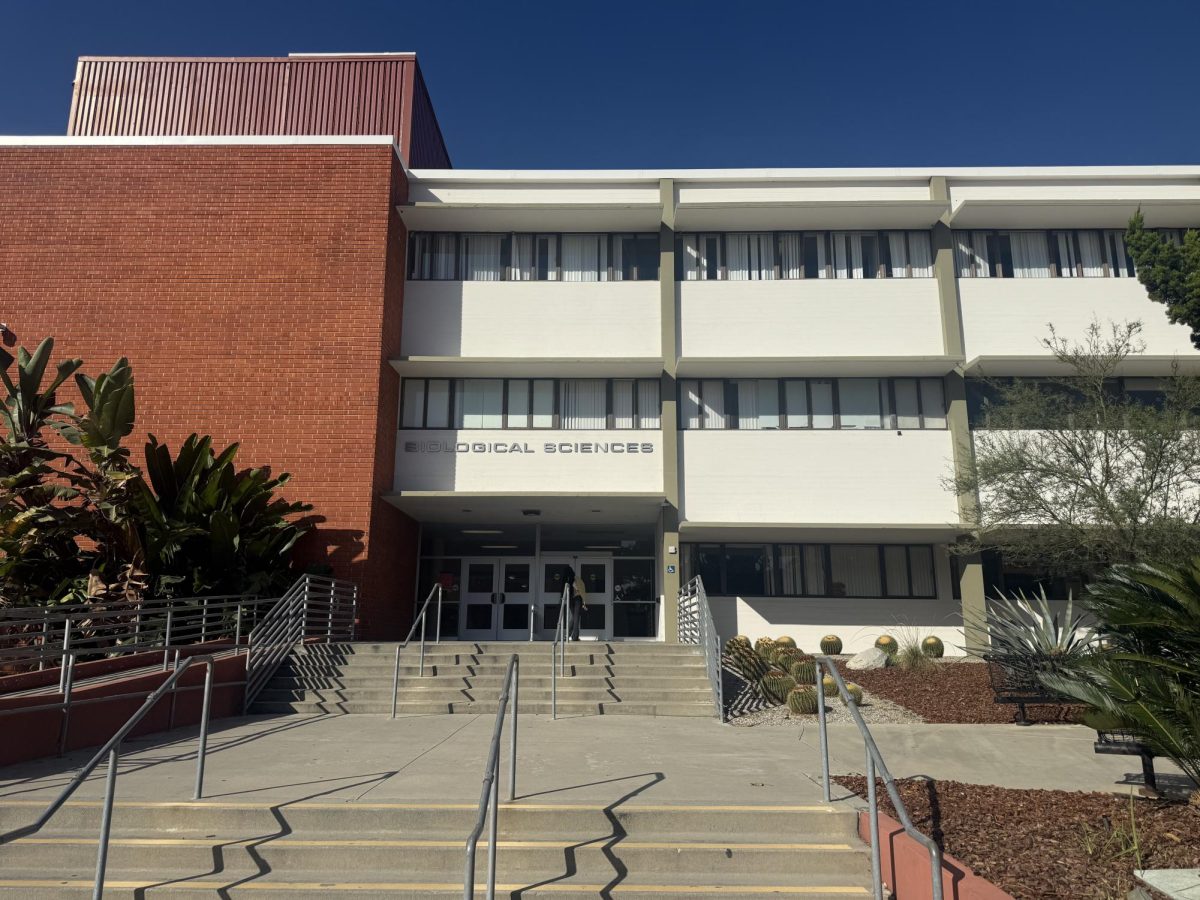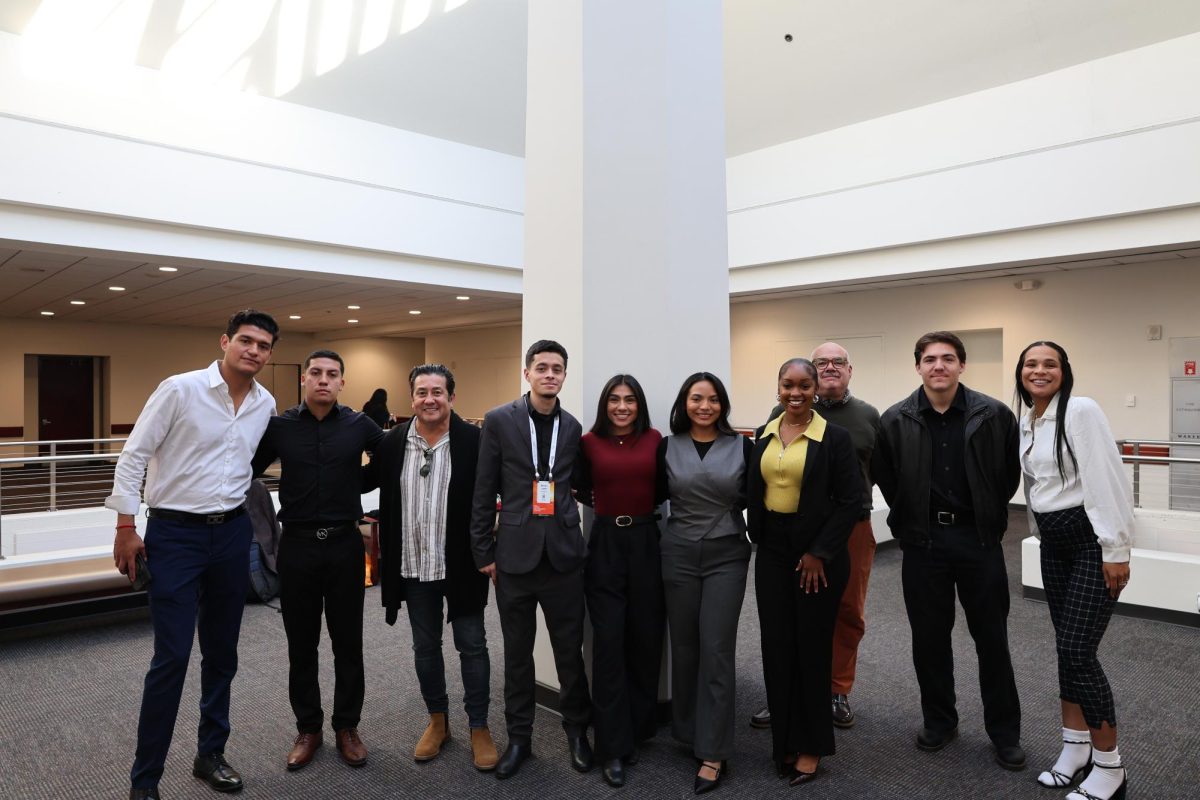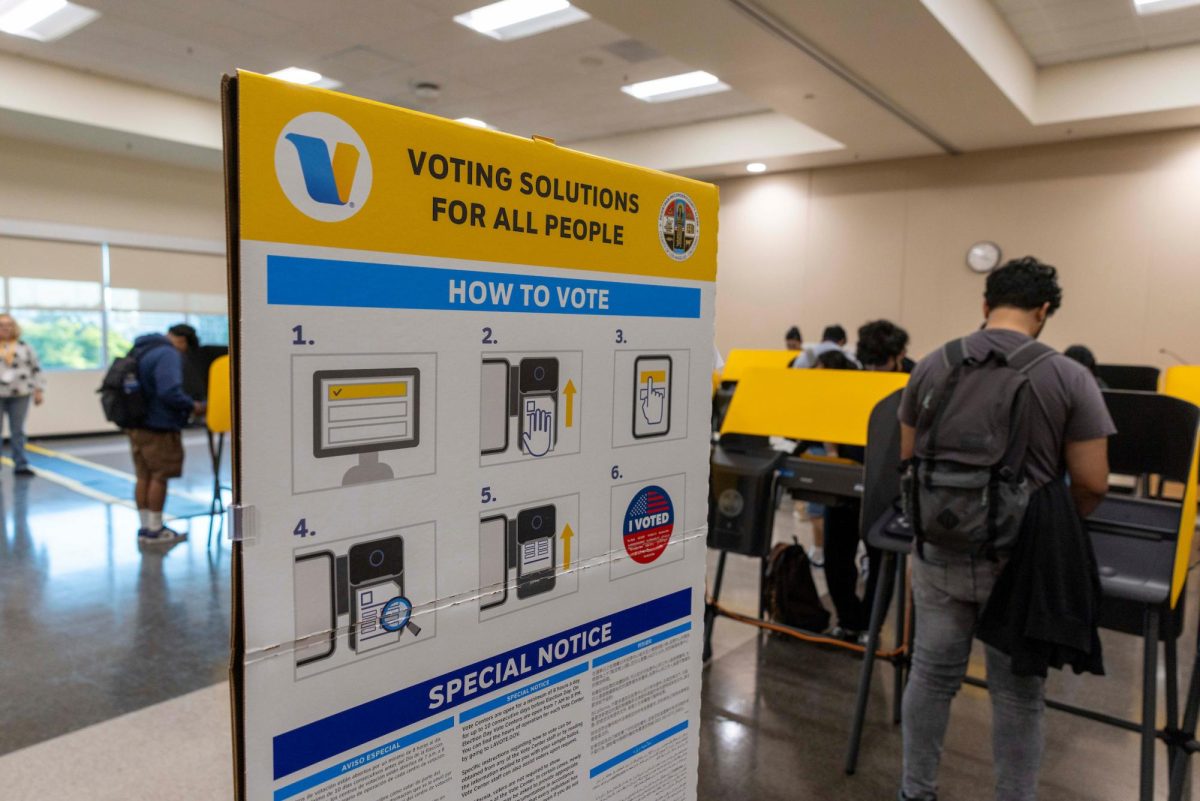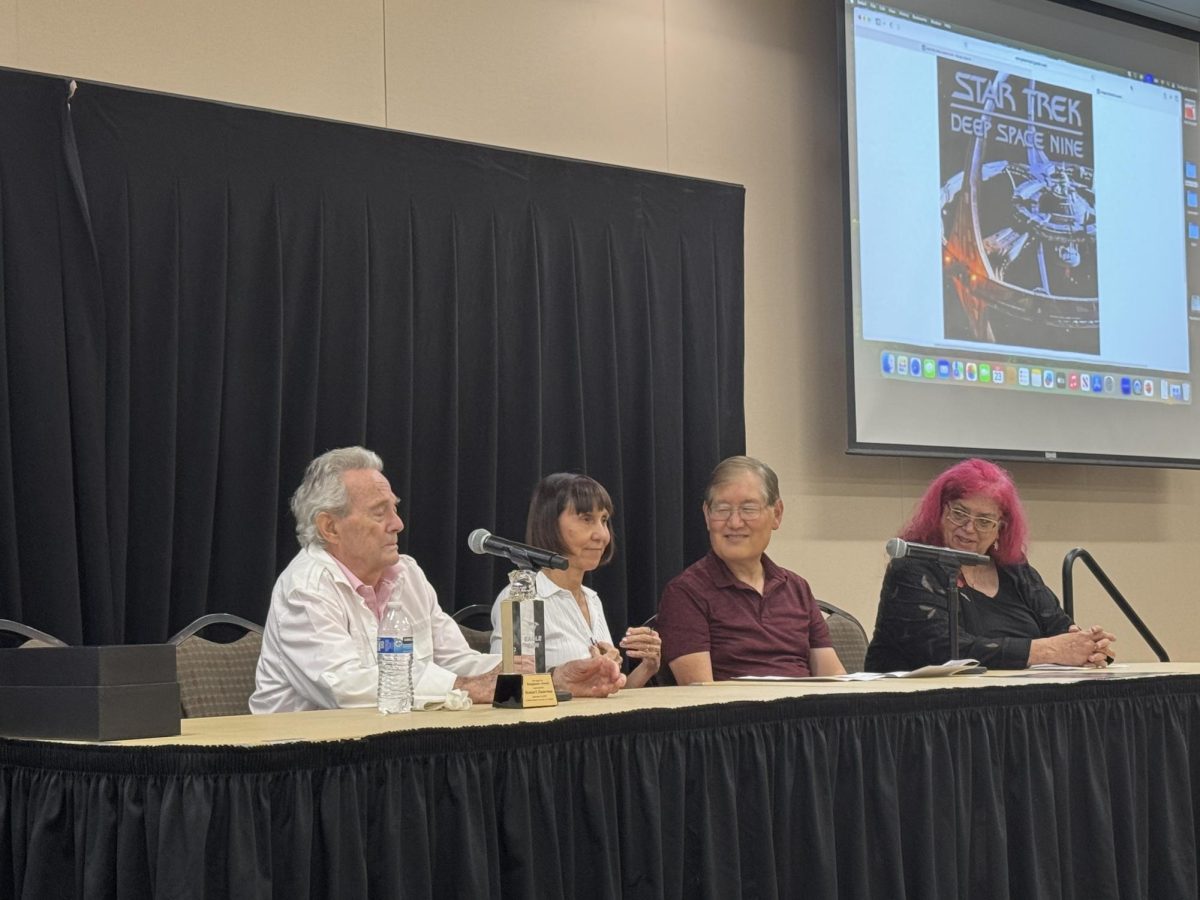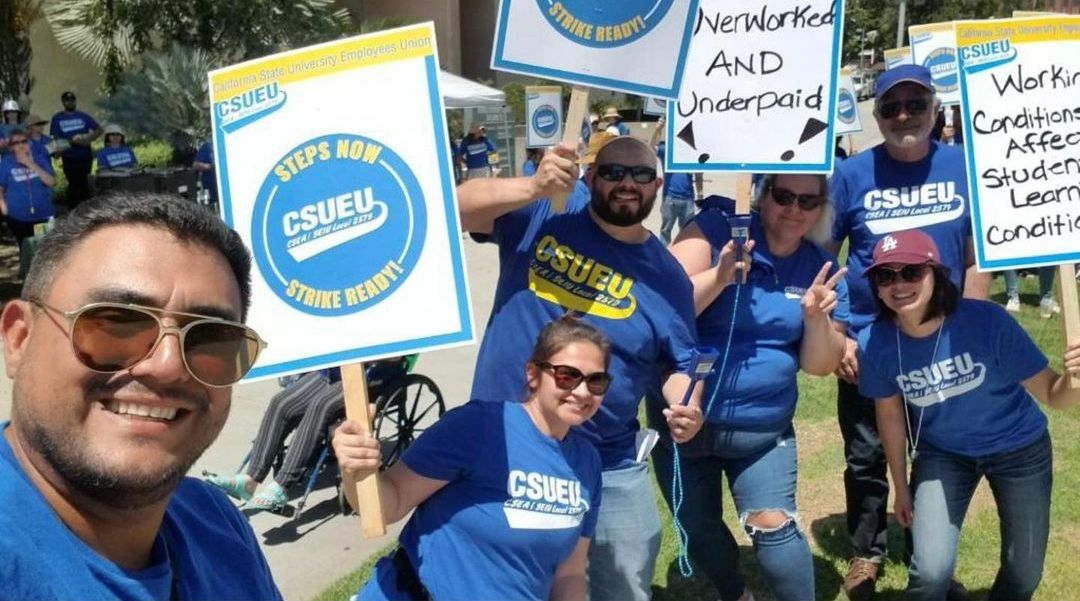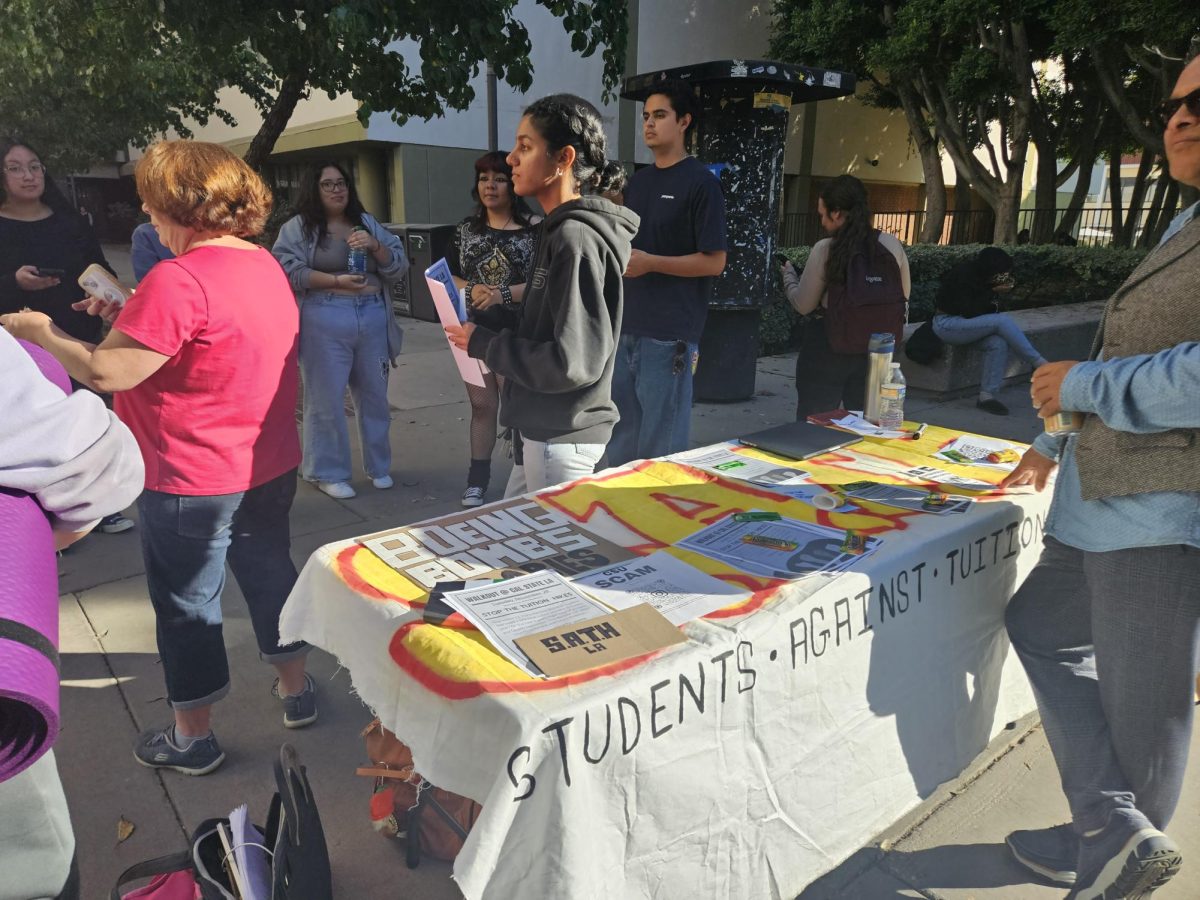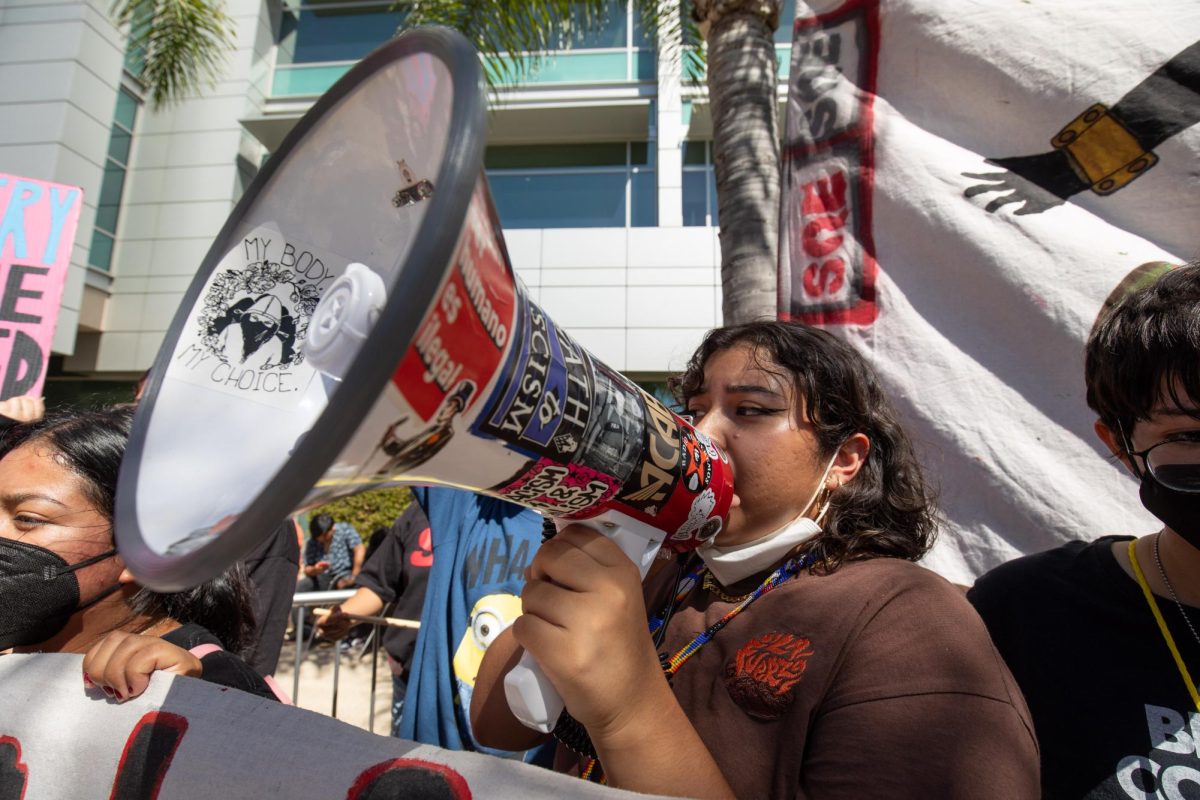Braving the wet weather dressed in raincoats and armed with signs, California Faculty Association (CFA) members across the 23 CSUs marched out in the rain calling for higher wages, longer parental leave, more mental health counselors, and improved spaces and learning environments on campuses.
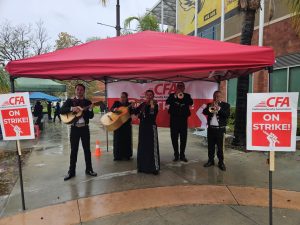
At Cal State LA, union members marched outside of the U-SU as a mariachi band played behind them along with others blowing horns and drumming on plastic buckets. While not every faculty member took part in the strike, around 700 members signed up for the picket lines with around 100 attending the first day, according to Cal State LA CFA Chapter President Anthony Ratcliff.
Los Angeles city council members Eunisses Hernandez and Hugo Soto-Martinez, along with council candidate Ysabel Jurado, came out and spoke in support of the CFA members during a press conference on campus.
The tentative agreement
Their efforts quickly led to the CFA announcing that a tentative agreement had been reached Monday night after just one day of picketing. However, the terms in this sudden deal has left some faculty and students with mixed feelings.
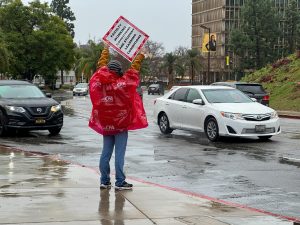
Some of the main points of the agreement are a 5% general salary increase for all faculty retroactive to July 1, 2023 and a 5% increase on July 1, 2024 that is contingent on the state not reducing base funding to the CSU, according to a CFA email. The agreement also included raising the salary floor for the lowest-paid faculty in salary ranges A and B by $6,000 and $3,000, increasing parental leave from six to 10 weeks, improving access to gender-inclusive restrooms and lactation spaces and increasing protection for faculty who have dealings with police.
“I am extremely pleased and deeply appreciative that we have reached common ground with CFA that will end the strike immediately,” said CSU Chancellor Mildred García in a press release by the CSU. “The agreement enables the CSU to fairly compensate its valued, world-class faculty while protecting the university system’s long-term financial sustainability. With the agreement in place, I look forward to advancing our student-centered work — together — as the nation’s greatest driver of social mobility and the pipeline fueling California’s diverse and educated workforce.”
Faculty and students left with mixed feelings

However, while the CFA board of directors have come to a tentative agreement with the CSU, some felt that many of terms that union members were bargaining for were not met.
Some of the biggest terms that CFA members wanted were a 12% raise, along with increased mental health counselors and smaller classroom sizes on campuses, which were not included in the highlights that were posted about the tentative agreement.
In a statement to the University Times, the CSU said that the 12% raise that CFA members wanted was “unrealistic.”
“The CFA’s demand for a 12% raise would cost $312 million just this year. Their other economic demands, such as life insurance increases and raising the minimum pay add up to another $68 million, for a total of $380. This is financially unrealistic. Their request far surpasses the state funding increase that the CSU received in last year’s state budget ($227 million) and is more than the entire budget of Cal Poly Pomona ($369 million).”
“Many CFA members will realize there’s a big gap between our demands six months ago, and what our statewide leadership agreed to after just one day of striking,” said English Professor Juan Pedro Lamata. “There are good things in the contract, the pay bump for the lowest paid lectures being the highlight.”
Lamata, along with other professors that spoke with the University Times, said that with the current agreement, they would be voting “no” when the move to ratify the agreement occurs. There is currently no timeline for the vote to occur, according to Wehr.
“I think a lot of CFA members, especially those who poured their heart and soul organizing for this strike, who showed up on the picket line will feel disappointed by the tentative agreement,” he said. “Especially because this type of a tentative agreement was reached so quickly, when it was clear that management was afraid of a strike, and that they were willing to improve the offer.”
Students for Quality Education member Emily Raab said that while she is glad that the union was able to secure an agreement, she thinks that faculty deserves better conditions than what was offered.
“I honestly think that the workers deserve even more than they have asked for. This agreement has some great things, but there is still a long way to go from here in terms of improving faculty pay, parental leave, etc,” Raab said. “CFA goes back into bargaining next year, and that will be a great opportunity to build off of these gains.”
CFA responds to the criticism
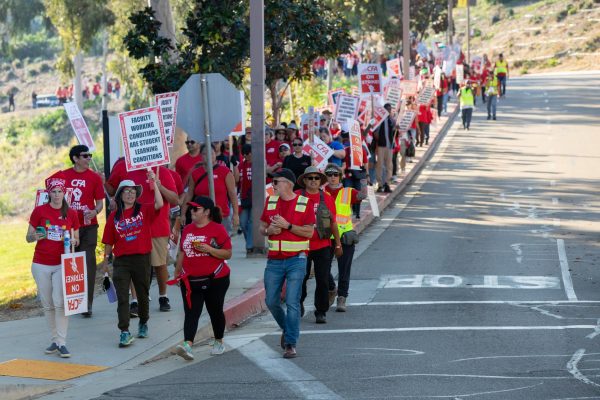
When asked about the negative response to the tentative deal, CFA Bargaining Chair Kevin Wehr told the University Times that so far the agreement only mentioned a few highlights and the finalized version was still in discussion.
This means that not everything the union has gained from the tentative agreement has been shared yet. Wehr said that the contract would have the International Accreditation of Counseling Services’ recommended ratio of mental health professionals, which is one counselor for every 1000 to 1500 students.
He also said that management agreed to working to control classroom sizes as well.
“We were looking for course caps, and management wouldn’t agree to strong course caps,” Wehr said. “But we do have some new language that we’re working on that they have agreed to, which would help control the growth of the number of students in each course.”
Wehr said that the bargaining team used a “different mechanism” when counting the salary range for the lowest-paid faculty in salary groups A and B.
“What’s happening is the general salary increase of 5% is raising the floor, and then we’re adding another $6,000 to that for A and the same for B,” he said.
He said that this would raise the salary floor for these two groups above what the CFA was originally bargaining for.
He said that the board chose to settle for a 5% salary increase retroactive to July 1, 2023, and the 5% contingent salary increase totaling a 10% raise.
“What that means is that we’re getting 10% over the next six months,” he said.
He clarified that the contingency in the new agreement was different from previous proposed contingencies.
“In the past, some of the raises required a certain level of state funding in order to have them be paid. That’s not what we have as a contingency this time. What we have instead is that the base line budget for the CSU will not be cut, and we’re fairly confident that that is not going to happen. Because the governor has said it’s not going to happen.”
In his proposed 2024-2025 state budget, Governor Gavin Newsom called to cover all current levels of funding for schools, according to Edsource.
The bargaining team will meet with the CSU Jan. 25 to finalize the language on the deal, which Wehr said he hopes to have by this week.
“I think the more that faculty learn about this tentative agreement, and the more that they sit with it, the more that they will see the value and the progress that this makes,” Wehr said.
Faculty and students scramble to classes with the sudden news
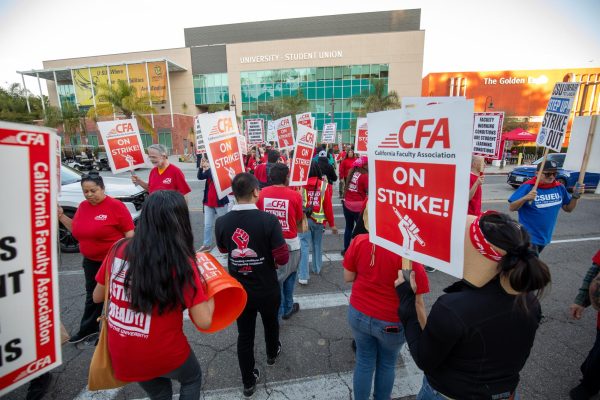
The sudden agreement was not only criticized by some faculty but students also expressed their frustration with the last minute return to classes.
Abel Pantoja, a social work major, said that the abrupt end to what students expected to be a week-long strike interrupted a lot of students’ schedules.
“I heard from one of my classmates that she had two doctor appointments and she had to rearrange her appointments because classes have opened up,” Pantoja said. “For us to get our stuff together last minute might have been too much.”
Although he wishes that students were given a day to prepare before returning to classes, Pantoja said he was fortunate enough that one of his professors made attendance optional on Tuesday and his other canceled.
Some professors were also left feeling caught off guard by the sudden news of the strike ending and the return of classes.
“Announcing this tentative agreement late at night on the first day of the strike, after faculty and students have planned for a week of strikes, is not sensitive to the realities of teaching,” Lamata said. “As a faculty member, I think, my colleagues, we understand that a lot of students work and have families and have lives outside of school, and it’s difficult to be told one thing and then immediately another.”
Wehr said that management was eager to end the strike as soon as possible, which was what led to the abrupt end.
“This is the nature of the strike, management was really interested in not having the strike continue. So they made a lot of concessions and made an offer that the Board of Directors ultimately agreed to,” Wehr said. “I know a lot of folks, it was difficult because of transportation issues, childcare issues – things like that. I think folks were trying to be reasonably flexible and how that worked out.”

